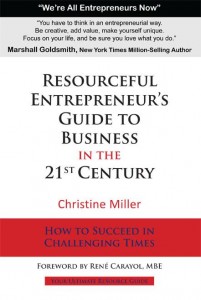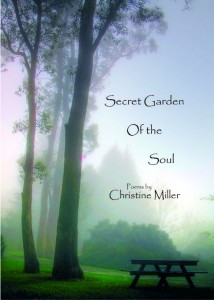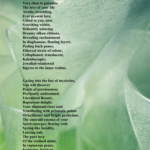Welcome to
A VERY BRITISH BLOG TOUR – 2013
A collection of blogs, books and authors who are surprisingly very British
 Christine Miller invites you to take part in ‘A Very British Blog Tour’ by visiting and supporting the websites of authors involved in the tour and who are dedicated to turning out some of the finest books available in Britain today. Authors Paul Anthony and Clive Eaton invited me, together with a hand picked group of British authors, to take part in this great initiative.
Christine Miller invites you to take part in ‘A Very British Blog Tour’ by visiting and supporting the websites of authors involved in the tour and who are dedicated to turning out some of the finest books available in Britain today. Authors Paul Anthony and Clive Eaton invited me, together with a hand picked group of British authors, to take part in this great initiative.
Each author named at the bottom of the page has asked been asked the same questions, but the answers will obviously all be different. You simply click on the author’s name below to see how they have answered the same question.
By the way, we British have certain conventions, traditions and procedures that are expected. There is a dress code in the reading of this British blog and you are expected to comply with it.
For example…
Now then, let us proceed in an orderly fashion. As you know, we are all very boring and staid in Britain, aren’t we?
Well, there’s a myth about the British and your starter for ten is – stuffy, class conscious, boring, staid! But is this still relevant in today’s world? Let’s find out from our wonderful writers what they feel about it.
So, without further ado, here are the questions and answers from
THE VERY BRITISH WRITER: Christine Miller
Q. Where were you born and where do you live at the moment?
 A. I was born just outside Preston, Lancashire, UK. Preston is a city now, but it was just a town when I was a gal. I have very happy memories of walks in the countryside, birdspotting, celandines, lily of the valley, cowpats, trips to the seaside, to the beautiful Trough of Bowland in the Pennines, to the Lake District, and to North Wales.
A. I was born just outside Preston, Lancashire, UK. Preston is a city now, but it was just a town when I was a gal. I have very happy memories of walks in the countryside, birdspotting, celandines, lily of the valley, cowpats, trips to the seaside, to the beautiful Trough of Bowland in the Pennines, to the Lake District, and to North Wales.
I now live in West London, with my family and one Bengal cat named Alfie, who we rescued. Of course he is now in charge of most things…
Q. Have you always lived and worked in Britain or are you based elsewhere at the moment?
A. I have lived in France, The Netherlands, Greece, Denmark, Norway and Australia, not necessarily in that order. One of my children was born in Denmark, and one was just 14 weeks old when we moved to Australia. Whilst I am currently based in London, with the ease of connection through the internet, I feel myself to be a global citizen with friends, colleagues and contacts almost instantly available all over the world. When I first lived in Oz we used to have to book phone calls, and there was an irritating and disconcerting time lag. Now with Skype, I can be in touch when the mood and desire take me!
 Q. Which is your favourite part of Britain?
Q. Which is your favourite part of Britain?
A. I love the Cotswolds, Dorset Heritage Coast, especially Lyme Regis and Bridport, The Lake District, and Scotland. I still love the Fylde coast where I grew up, and I am immensely proud of London. I think it is a wonderful city, and the way Great Britain pulled off the 2012 Olympic Games was truly amazing, it was a privilege to be part of it.
Q. Have you ‘highlighted’ or ‘showcased’ any particular part of Britain in your books? For example, a town or city; a county, a monument or some well-known place or event?
A. Yes. Lyme Regis in Dorset, in several poems in my book Secret Garden of the Soul; London Underground, in particular Ravenscourt Park Station on the District Line in another poem called ‘The Slow Train’; London Snow where I live, The Thames at Marlow, Buckinghamshire, in a poem called ‘Sea of Mind’. Also another poem written about the garden of a friend’s house where I write deep in the West countryside, The Goddess Tree and one from France called Vines. Probably more, but that’s more than enough for now.
Q. There is an illusion – or myth if you wish – about British people that I would like you to discuss. Many see the ‘Brits’ as ‘stiff upper lip’. Is that correct?
A. No, not in my experience. It may have been true to some extent in earlier times, such as the reign of Queen Victoria, or during WWII for example, when people were dealing with external challenges and deprivation, and were in danger – and adopted a stoic, let’s-get-on-with-it approach. We don’t have the expressive, emotional nature of other races with more fiery temperaments, perhaps, but we are full blooded and passionate in our own way. Also, these days, being British is about a broader, multicultural heritage and way of living – I think we have opened up in many ways because we are now a melting pot of many races, cultures and creeds.
Just look at things like football crowds and how we responded to hosting the Olympics; if you had the chance to be at the Olympic Park you’ll know that the atmosphere was just amazing, the volunteers were brilliant, and I think it also came across on television that there was real happiness in the air, and such jubilation when we did well.
 Also, the exuberance of events such as Royal Weddings and the Queen’s Jubilee – we do it with such style and turn out in our thousands. All those people lining the Thames in pouring rain in June, waving flags and cheering, and hosting celebrations all around the country – they might have been ‘stiff upper lipped’ in terms of enduring horrible weather, but they were spirited and joyful in their appreciation for the occasion.
Also, the exuberance of events such as Royal Weddings and the Queen’s Jubilee – we do it with such style and turn out in our thousands. All those people lining the Thames in pouring rain in June, waving flags and cheering, and hosting celebrations all around the country – they might have been ‘stiff upper lipped’ in terms of enduring horrible weather, but they were spirited and joyful in their appreciation for the occasion.
I do think we have that characteristic of drinking tea…(with or without the extended little finger!) but we also love coffee, and of course we still have the reputation for liking warm beer, though chilled white wine is equally popular now, as are cold beers and exotic cocktails.
 Q. Do any of the characters in your books carry the ‘stiff upper lip’? Or are they all ‘British Bulldog’ and unique in their own way?
Q. Do any of the characters in your books carry the ‘stiff upper lip’? Or are they all ‘British Bulldog’ and unique in their own way?
A. Those characters peopling my writing are in possession of a full range of emotional expressions; I would describe them as global souls occupying a unique place in the world. I haven’t yet really ventured into prose fiction in such a way that I can offer a description of my characters, but if I were to imagine, they would be as complex as we all are, and might have national characteristics to support and elaborate the plot.
Q. Tell us about one of your recent books?
 A. My most recent published book is a non-fiction volume called The Resourceful Entrepreneurs Guide to Business dedicated to the self-employed, entrepreneurs, and independent thinkers such as authors, to help them harness their talents and ambitions into successful ventures through being more resourceful and managing their mind-sets with focus and fulfillment. Innovators and creative people can find it tough to stay on track and translate their ideas into action, and this book is here to help.
A. My most recent published book is a non-fiction volume called The Resourceful Entrepreneurs Guide to Business dedicated to the self-employed, entrepreneurs, and independent thinkers such as authors, to help them harness their talents and ambitions into successful ventures through being more resourceful and managing their mind-sets with focus and fulfillment. Innovators and creative people can find it tough to stay on track and translate their ideas into action, and this book is here to help.
I also publish an online magazine portal dedicated to human potential, where I often interview authors – a recent piece is with Wm Paul Young, of The Shack fame, which was a surprise phenomenal best seller with 18 million sales and 50 weeks on the NYT bestsellers list. He gives some interesting insights.
Q. What are you currently working on?
A. I am playing with and creating several projects – a new volume of poems called Courage to Love, a non-fiction about Love in Organisations, for which I’ve interviewed 60 leaders about love, caring and compassion at work, plus I have two companion editions to Resourceful Entrepreneur’s Guide, on transformation and growth and leadership in the pipeline. And some very juicy interviews coming up.
Q. How do you spend your leisure time?
A. I invest my leisure time in reading, cooking, cinema, dining out, entertaining, theatre, gardening, being in nature and in conversation, and writing, especially poetry, is a joy to me so I regard that as leisure as well, and I love to travel. In fact, because my work is largely play, I often can’t distinguish between the two, and enjoy a fertile creative playground which is highly productive.
Q. Do you write for a local audience or a global audience?
A. A global audience, geographically. I have a very specific reader in mind though when writing, in terms of audience.
Q. Can you provide links to your work?
A. Yes, I certainly can. I write, edit and publish and offer written, audio and video author interviews for book promotion purposes.
Secret Garden of the Soul
Resourceful Entrepreneur
Guide to Writing Poetry (complimentary)
ReSource magazine web portal
Idea Festival
Author Interviews
Video Interview
 I’ve invited the following British, not necessarily British-based, authors to join in the fun. Once they’ve agreed, and set up their own answers on their respective websites/blogs, then clicking on their name will take you there.
I’ve invited the following British, not necessarily British-based, authors to join in the fun. Once they’ve agreed, and set up their own answers on their respective websites/blogs, then clicking on their name will take you there.
Also, if you are a British author and would like to join in, please get in touch via the Contact page or click the link in the invitation opposite.
To see how our other authors responded, click on an author’s name below. They will appear in orange when the links to their answers are live.
Tom Evans
Kirsty Allison
Tony Buzan
Lubna Gem Arielle
Sarah Arrow
John Logan
Lynn Serafinn
Mark Perl
Anne Fallas
Anthony Russell
Diana Cooper
Nigel Cutts
Mary Curtis
???????
Twitter hashtag: #VBBT2013
Shortlink: http://bit.ly/britblogtour











